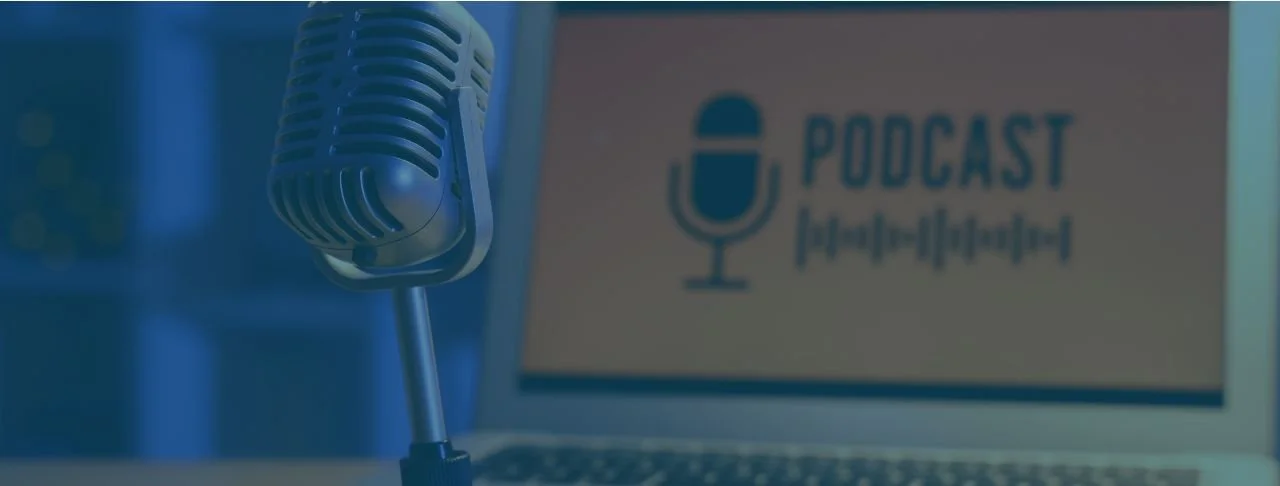
The Baby Sleep Connection Podcast
This weekly podcast is for tired parents who want to understand how to support their baby’s sleep without resorting to separation strategies that hurt attachment.
We explore infant sleep development through attachment, parenting styles, sleep science, practical sleep strategies. Special guests round out our episodes by bringing in expertise and perspectives on sleep, parenting, and thriving.
Catch the next episode right here.
Ep 21: How to Hire a Sleep Coach
Sleep deprivation is hard enough—add the overwhelm of advice and suddenly you’re also trying to figure out which sleep coach to trust.
In this episode, Heather Boyd breaks down how to find a coach who’s right for you—what to look for, what to question, and how to move from frozen and overwhelmed to supported and confident in your next step.
Perfect for parents who want clarity, not pressure.
Ep 20: Long Bedtimes: Why they happen and what to do about it
If your baby’s bedtime is stretching into one or two exhausting hours, this episode breaks down why long bedtimes happen and how to shorten them.
Learn six common causes, six practical strategies, and a gentle approach to creating an easier, more connected bedtime routine.
Ep 19: Are Bad Habits Really That Bad?
Worried that nursing, rocking, or bedsharing are creating “bad habits”? This episode gently unpacks why those fears show up — and why they’re often misplaced.
Explore how habits actually serve babies, why they’re more like diapers than dangers, and simple reframes to ease the worry.
Ep 18: The 5 Steps of Conscious Discipline (for Parents Who Want to Respond Instead of React)
If big emotions and reactive moments are common in your home, this conversation with Mr. Chazz breaks down how to shift from overwhelm to intentional parenting.
Discover the OOPS strategy, the power of self-regulation, and how building supportive “playlists” of new skills can transform daily challenges.
Ep 17: 3 Ways to Connect With Your Baby for Better Sleep and Easier Parenting
If bedtime or transitions feel like a battle, this episode explores how connection and self-regulation can make cooperation easier and parenting feel lighter.
You’ll learn practical ways to use physical connection, play, stories, and mindful habits to ease tough moments and strengthen attachment.
Ep 16: Little Changes Add up: Strategies for Making Parenting Easier
Feeling overwhelmed by the endless challenges of early parenting? This episode breaks down a simple three-step approach to help you get unstuck and know exactly where to start.
Learn practical strategies to manage chaos, reduce decision overload, and tackle parenting struggles with more clarity and confidence.
Ep 15: Holistic Approaches to Raising Healthy Kids with integrative pediatrician, Dr. Joel Warsh
Feeling overwhelmed by comparison culture and conflicting parenting advice? This episode breaks down how to use reliable information wisely, avoid the “perfect parenting” trap, and choose flexible, realistic strategies that support your child’s health.
Ep 14: Dropping Naps: How Should I Handle This?
Is your baby ready to drop a nap? Learn the key signs, what’s happening biologically, and practical ways to manage the messy middle of shifting nap schedules.
Ep #13: How Much Sleep Does Your Baby Need? (And are they getting enough?)
How much sleep does your baby need at each age? This episode breaks down evidence-based baby sleep guidelines, recommended sleep hours, and the factors that affect your baby’s total sleep.
EP 12: My Baby Is Overtired! (What do I do?!)
Sleep coach and OT Heather Boyd tackles the fear of overtired babies and why missed bedtimes make settling so tough. She shares simple, calming strategies to help you understand your baby’s cues and support better sleep.
EP 11: The Emotional Edge: Parenting Tools for Emotional Vocabulary, Emotional Intelligence, and Resilience with Tara Gratto
Heather and Tara Gratto dive into why emotional regulation is so challenging for both kids and parents, and how to make it easier.
Tara shares insights from decades of experience, plus simple, compassionate tools you can use at home right away.
EP 10: 4 Reasons Your Baby Isn't Sleeping Like You Expected
If you’re wondering why your baby’s sleep feels harder than it should, Heather explains the four issues she sees most often — and what they mean for your family.
Catch this preview of her free May 30th Masterclass, “Why Isn’t My Baby Sleeping?” at familysleep.ca/free-workshops.
EP 9: Self-Care and Healing for Parents with Special Needs, with Sara Intonato
In this powerful interview, Heather and Sara Intonato dive into coping tools, co-regulation, and the deep self-care required to parent without losing yourself.
Sara shares how yoga, inner work, and intentional action helped her heal — and how these practices can support every parent, regardless of their child’s needs.
EP 8: My Top 4 Gifts for Mother's Day
If Mother’s Day hasn’t always felt nourishing, this episode invites you to rewrite the script with compassion and clarity.
Heather explores meaningful self-gifts, the power of letting go, and how self-love can shift your Mother’s Day experience.
EP 7: Sleep Hygiene -How to Change Sleep Without Changing Your Baby
When sleep feels hard, it’s easy to zero in on your baby’s behaviour — but the real magic often lies in what’s happening beyond sleep itself.
Heather shares four simple, underrated sleep-hygiene strategies that can make rest easier for your whole family.
EP 6: 5 Ways to Work Less Hard on Sleep and Get More Of It
Heather Boyd unpacks why working harder on your baby’s sleep often makes things tougher.
She shares why letting go, not grinding harder, can actually bring you more rest, more ease, and more sleep.
EP 5: Rediscovering Movement Post-Partum with Jessica Darling
Heather chats with postpartum fitness specialist Jessica Darling about redefining strength after birth.
Together, they explore how to reconnect with your body, set realistic expectations, and care for yourself while caring for your baby.
EP 4: The Hardest Thing I'll Ever Ask You To Do
Heather Boyd unpacks what it really means to trust your baby and trust the process — even when you’re exhausted and unsure.
She explores curiosity, evolution, and letting go of “fixing,” so you can support your baby and yourself with more confidence and ease.
EP 3: How to Support Your Unsettled Baby with Alice Lucken, IBCLC
Heather and IBCLC Alice Lucken dig into what really lies beneath fussiness and unsettled behaviour in babies.
Together, they explore root causes, feeding, reflux, and what parents truly need for calmer, more supported days.
EP 2: What's Driving Your Baby's Sleep?
Heather Boyd breaks down why your baby’s sleep is nothing like yours — and how understanding that can make nights feel lighter.
She explores how sleep matures, what you can control, and why letting go of exhausting strategies brings more ease to your evenings.


